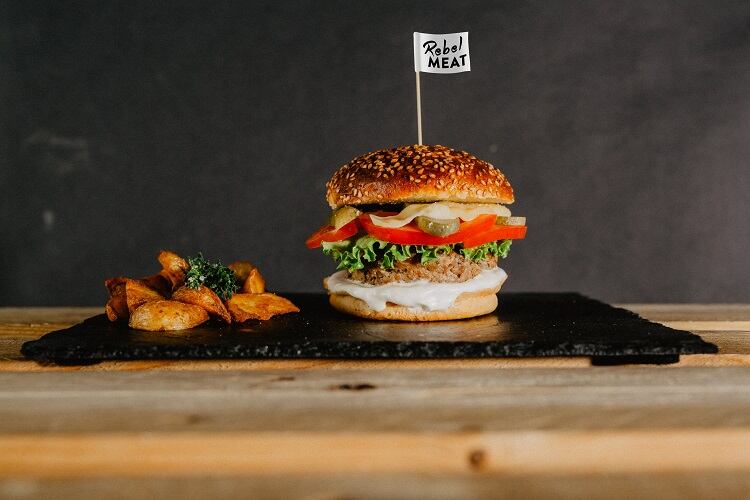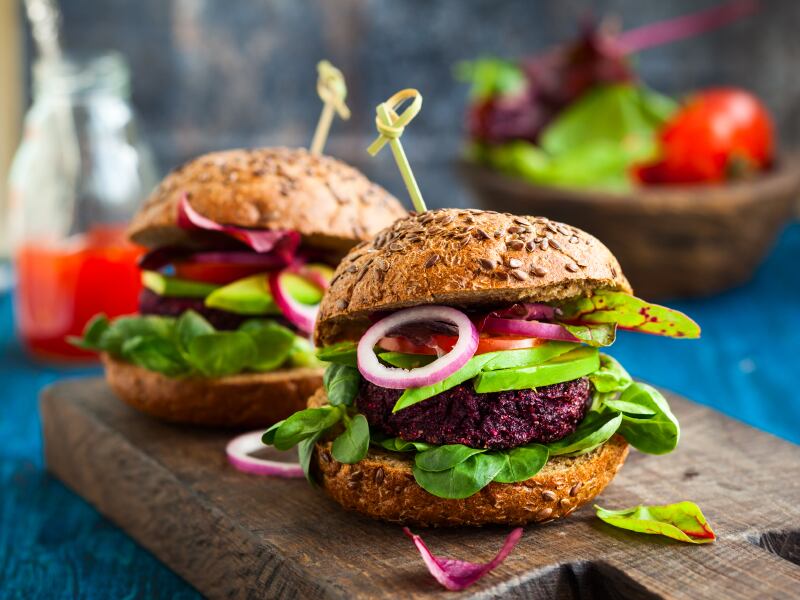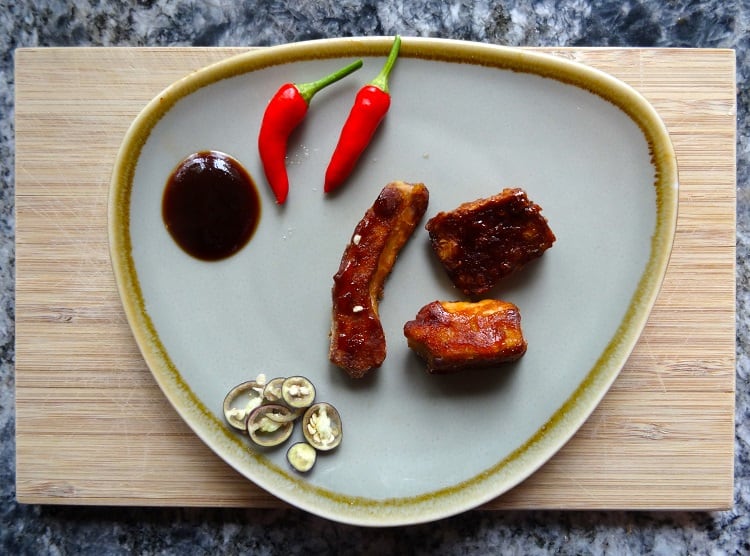Rebel Meat is setting itself apart in the meat analogue and alternative protein space.
Yes, similarly to competitors Beyond Meat and Impossible Foods, the Austrian start-up is targeting flexitarians. However, Rebel Meat CEO Philipp Stangl claims his offerings will also appeal to the ‘hardcore meat eaters’ less open to trying vegetarian or vegan products.
“We think we can reach people that a purely vegan brand cannot reach,” he told FoodNavigator.
The Rebel Meat Burger
Rebel Meat’s ethos is to develop ‘sustainable nutrition for a healthy planet’. The start-up’s first product, the Rebel Meat Burger, consists of 50% beef and 50% plant-based ingredients.
In doing so, the burger saves approximately 1.5kg of carbon emissions compared to its 100% beef counterpart. The Rebel Meat Burger also uses less water (approximately 1000 litres less) and land (at least 1000 square-metres less).
From a nutrition standpoint, the hybrid burger contains 55% less cholesterol and 50% less fat than a traditional beef burger.
“We use mostly mushrooms, in different varieties,” said Stangl, citing the king oyster mushroom and shitaki, among others. And the patty also contains millet, which in its cooked form, acts as a binder, he explained.
“All of these ingredients are locally sourced, natural and organic. We don’t use any additives.”
This allows Rebel Meat to tap into growing consumer demand for natural, minimally processed foods. “Flexitarians or health-conscious consumers that are curious about where the ingredients come from, if it is locally sourced etc. That is one consumer group that we think can benefit.”
Indeed, Rebel Meat is positioning itself against the highly-processed methods used by meat analogue manufacturers on the market. “We took a lot of care in the recipe and process development. We use low and mild processing methods and no protein extrusion techniques.
“We cook some of our ingredients, and do so in a way that their nutrient value and texture remains.”

Changing the food system
Rebel Meat was created by three founders: Cornelia Habacher, who heads up product development and market research; Wolfgang Haidinger, responsible for customer acquisition and marketing; and operations and finance CEO Stangl.
The trio were introduced by mutual friends in Vienna, where they live and work. “We were all very enthusiastic about the need to change our food system,” Stangl explained. “We came across this problem: the world eats way too much meat.”
Looking at climate change, the overuse of antibiotics, and water issues, the founders realised industry needed ‘solutions now’, and ‘not in a couple of years’. “While plant based meat replacements are definitely getting better, there is still a wide range of consumers for whom this is too much of a compromise and definitely wouldn’t buy them.”
Habacher, Haidinger and Stangl are all keen supporters of ‘clean meat’ – otherwise known as lab-grown meat or cultured meat. To develop cultured meat, muscle cells are harvested from a living animal – such as a cow, pig or fish – and nurtured in a laboratory using similar techniques to those used in regenerative medicine.

Despite much research and development in this space, cultured meat is yet to hit the market. “Clean meat is a very promising option, but it is still very far out,” said Stangl. “We need solutions now.”
So while in the meantime, Rebel Meat is using organic, locally sourced beef for its patty, it will have its eyes on cultured alternatives once commercial options become available.
“The long-term vision is that we think we can prepare the market entry for lab grown meat,” the CEO told this publication. “Most people in the industry agree that when clean meat first becomes commercially available, it will not be sold in ‘pure form’.” This is because of the taste and texture optics, he continued. “It will not be consumer grade. And it will be quite expensive.”
Therefore Stangl predicts cultured meat will not be sold pure, but in a blend with plant-based ingredients. “It will come to market as a hybrid product. This means it will have the properties that consumers ask for, but sold at a lower per kilogram price.”
The start-up’s strategy is to partner with clean meat companies and help them enter the market.
“We believe that over the next couple of years, we can build up the know-how on how to build the perfect hybrid meat products, build up our brand with distribution all over Europe, and then simply replace the conventional meat with clean meat.”
And in the short and mid-term?
For now, Rebel Meat is selling its burger patty B2B to foodservice outlets – and predominantly restaurants. Later on, once the brand has built a stronger presence and consumer base, the start-up wants to enter the retail sector as well.
“In an ideal world, a burger restaurant, for example, would replace all beef burger patties with our burger patties, and then offer vegetarian burgers on the side for non-meat eaters,” Stangl revealed.
The patties are distributed raw and frozen, similarly to many other vegan, vegetarian and meat burgers in the foodservice space. “Our burgers cook very much like beef burgers,” the CEO continued, adding that the start-up does advise chefs offer them well-done ‘for perfect results’. “That is the only difference.”
In the mid-term, the goal is to reduce the 50% beef content down to 25%, but to retain the 100% beef flavour. “We will continue to invest in production development and bring the meat ratio down.
“This will mean that we need less meat, it’s healthier, and even better for the environment.”





